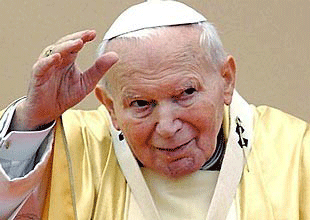Pope reflects on Christ's friendship, 'almost frightening faculty' of priestly power
 June 29, 2011
June 29, 2011
As he celebrated Mass for the feast of Sts. Peter and Paul on June 29, Pope Benedict XVI devoted much of his homily to reflections on the 60th anniversary of his ordination as a priest, which fell on the same day.
Commenting on Christ's assurance to his apostles that they were "no longer servants, but friends," the Pope recalled hearing the same words on the day of his ordination. "I knew deep down that these words were no mere formality, nor were they simply a quotation from Scripture," he said. "I knew that, at that moment, the Lord himself was speaking to me in a very personal way."
With those words, the Holy Father continued, the Lord was "changing something at the deepest level of being." He spoke about how Jesus confers upon priests the power to forgive sins—"an almost frightening faculty to do what only he, the Son of God, can legitimately say and do."
"Friendship is not just about knowing someone, it is above all a communion of the will," Pope Benedict said. To be a "friend" of Jesus, then, means that one "grows into ever greater conformity with his will."
Toward the end of his homily, the Holy Father apologized for speaking so much about his own ordination, and turned to the traditional ceremony for the feast of Sts. Peter and Paul, when newly appointed archbishops receive the pallium as a sign of their metropolitan rank and their communion with the Holy See.
The pallium is a vestment worn around the shoulders, and the Pope pointed out that it could be compared with the "easy yoke" of which Jesus spoke. "Christ's yoke is identical with his friendship," the Pontiff said. "It is a yoke of friendship and therefore "a sweet yoke", but as such it is also a demanding yoke, one that forms us. It is the yoke of his will, which is a will of truth and love."
Source(s): these links will take you to other sites, in a new window.















_0624_-_Chiesa_tsunami.jpg)



 On June 25, a flash mob "The Pope, Ukraine, and I" will be staged on Independence Square in Kyiv. The event will be dedicated to the 10th anniversary of Pope John Paul II's visit to Ukraine.
On June 25, a flash mob "The Pope, Ukraine, and I" will be staged on Independence Square in Kyiv. The event will be dedicated to the 10th anniversary of Pope John Paul II's visit to Ukraine.